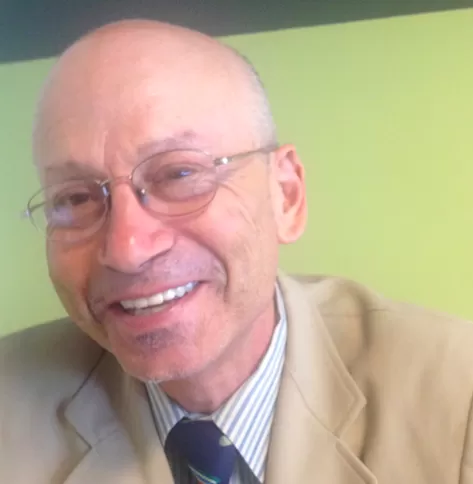Irvin Dawid discovered Planetizen when a classmate in an urban planning lab at San Jose State University shared it with him in 2003. When he left San Jose State that year, he took with him an interest in Planetizen, if not the master's degree in urban & regional planning.
As a long-time environmental activist, he formed the Sustainable Land Use committee for his local Sierra Club chapter and served six years on the Bay Area Air Quality Management District’s Advisory Council from 2002-2008. He maintains his interest in air quality by representing Sierra Club California on the Clean Air Dialogue, a working group of the Calif. Environmental Dialog representing business, regulatory and public health/environmental interests.
Major interests include transportation funding, e.g., gas taxes, vehicle miles traveled (VMT) fees, road tolls and energy subsidies that lead to unlevel playing fields for more sustainable choices.
He hails from Queens (Bayside) and Long Island (Great Neck); received an AAS in Fisheries & Wildlife Technology from SUNY Cobleskill and a B.S. from what is now Excelsior College.
After residing for three years on California’s North Coast, he’s lived on the San Francisco Peninsula since 1983, including 24 years in Palo Alto. Home is now near downtown Burlingame, a short bike-ride to the Caltrain station.
He’s been car-free since driving his 1972 Dodge Tradesman maxi-van, his means to exit Long Island in 1979, to the junkyard in 1988.
Major forms of transportation: A 1991 'citybike' and monthly Caltrain pass, zone 2-2. "It's no LIRR, but it may be the most bike friendly train in America."
Irvin can be reached at [email protected]
Field Poll: HSR Falls Into Disfavor With Majority Of Californians
According to the non-partisan, independent poll, 64% of respondents endorse placing the 2008, $9.95 billion bond measure back on the ballot to allow voters to choose to proceed with the train project now that costs have doubled; 59% would vote 'no'.
Huge Jump In CO2 Emissions Reported For 2010
As delegates from 191 nations gather in Durban, South Africa to tackle climate change, a new report shows the largest increase in carbon emissions, and the greatest percentage increase since 2003. Coal combustion accounts for more than half the gain.
Toll Increase Pushes Commuters Into Transit
The Port Authority of N.Y & N.J toll increase on Hudson River bridges and tunnels causes a 4% drop in vehicles and 3.7% increase in PATH train ridership despite fare increase; 3/5% increase in E-Z pass usage, and 20% increase in toll revenue.
Gas Prices & Transit Ridership: New Report Details The Connection
Eric Jaffe reports on new research by urban travel behavior expert Bradley Lane of U. of Texas/El Paso on elasticity of gas prices and bus and rail ridership. Interestingly, rail ridership spiked twice as much as bus ridership when gas prices rose.
San Francisco: "Transit First" In Name Only
Well ahead of it's time, San Francisco adopted a 'transit-first policy' in 1973. However, the 'drive-alone' mode dominates at 39%. While far better than elsewhere in the Bay Area and much of the U.S., transit remains clearly in second place at 32%.

























